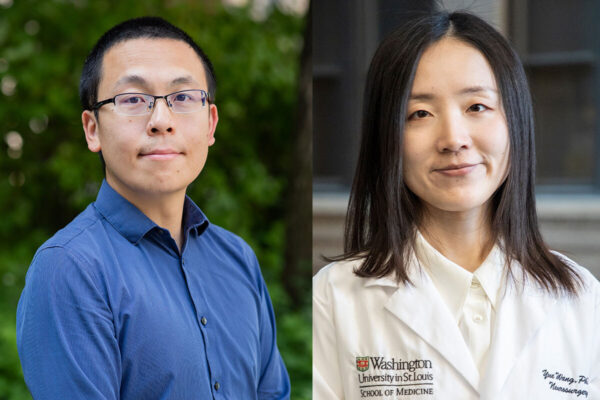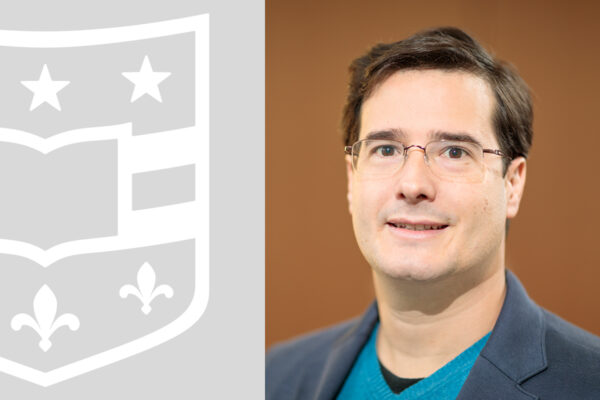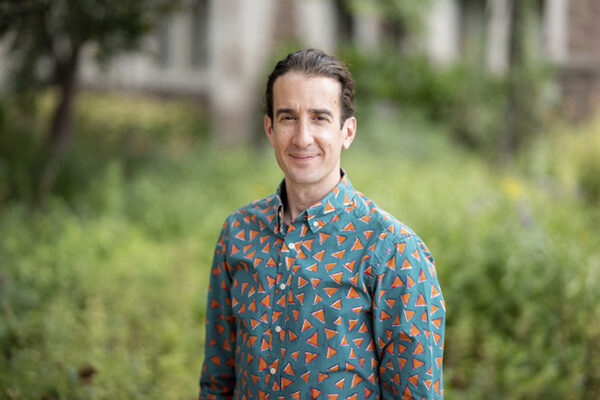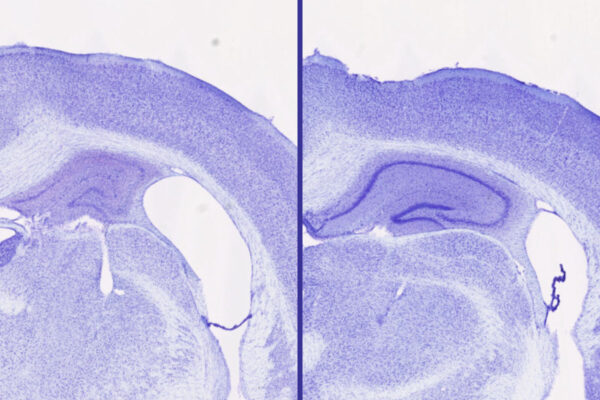Yi’s research soars with Eagles Autism Foundation
A WashU Medicine neuroscientist and fan of the Philadelphia Eagles, Jason Yi, has received a $400,000 grant to study autism spectrum disorder from the football team’s foundation.
Prozac treats rare form of epilepsy in WashU Medicine case study
WashU Medicine researchers showed that a popular antidepressant drug effectively reduced seizures for two sisters with a rare form of epilepsy.
Researchers identify brain cells key to facial recognition
A team led by WashU Medicine radiology associate professor Shuo Wang has identified neurons that appear to play a key role in our ability to recognize people.
Blood plasma reveals shared pathways in neurodegenerative diseases
WashU Medicine researchers have identified biomarkers of Alzheimer’s, Parkinson’s and frontotemporal dementia from blood plasma, suggesting new therapeutic avenues.
A unified theory of the mind
Biologist Keith Hengen in Arts & Sciences at Washington University in St. Louis says “criticality” is the key to understanding how the brain works — and how to keep it free from Alzheimer’s and other diseases.
AI-based brain-mapping software receives FDA market authorization
The FDA has given market authorization to a WashU startup’s technology that quickly and accurately maps the sensitive areas in patients’ brains to help neurosurgeons plan safe and effective surgeries.
Phillips-Cremins named BJC investigator
Jennifer Phillips-Cremins, a pioneer in understanding 3D genome structure and its impact on the brain, will join WashU Medicine as BJC Investigator.
Research untangles role of stress granules in neurodegenerative disease
Researchers at WashU and St. Jude Children’s Research Hospital have found that biomolecular condensates play a role in suppressing the effects of ALS-causing mutations.
Sleep aid blocks neurodegeneration in mice
A new study by WashU Medicine researchers suggests that lemborexant and sleep aids that work the same way could help treat or prevent damage caused by harmful buildup of the protein tau in multiple neurodegenerative diseases, including Alzheimer’s.
Overlooked cell type orchestrates brain rewiring
Researchers at WashU Medicine led by Thomas Papouin have upended the textbook understanding of how connections between brain cells are rearranged during states of heightened vigilance or attention.
Older Stories









